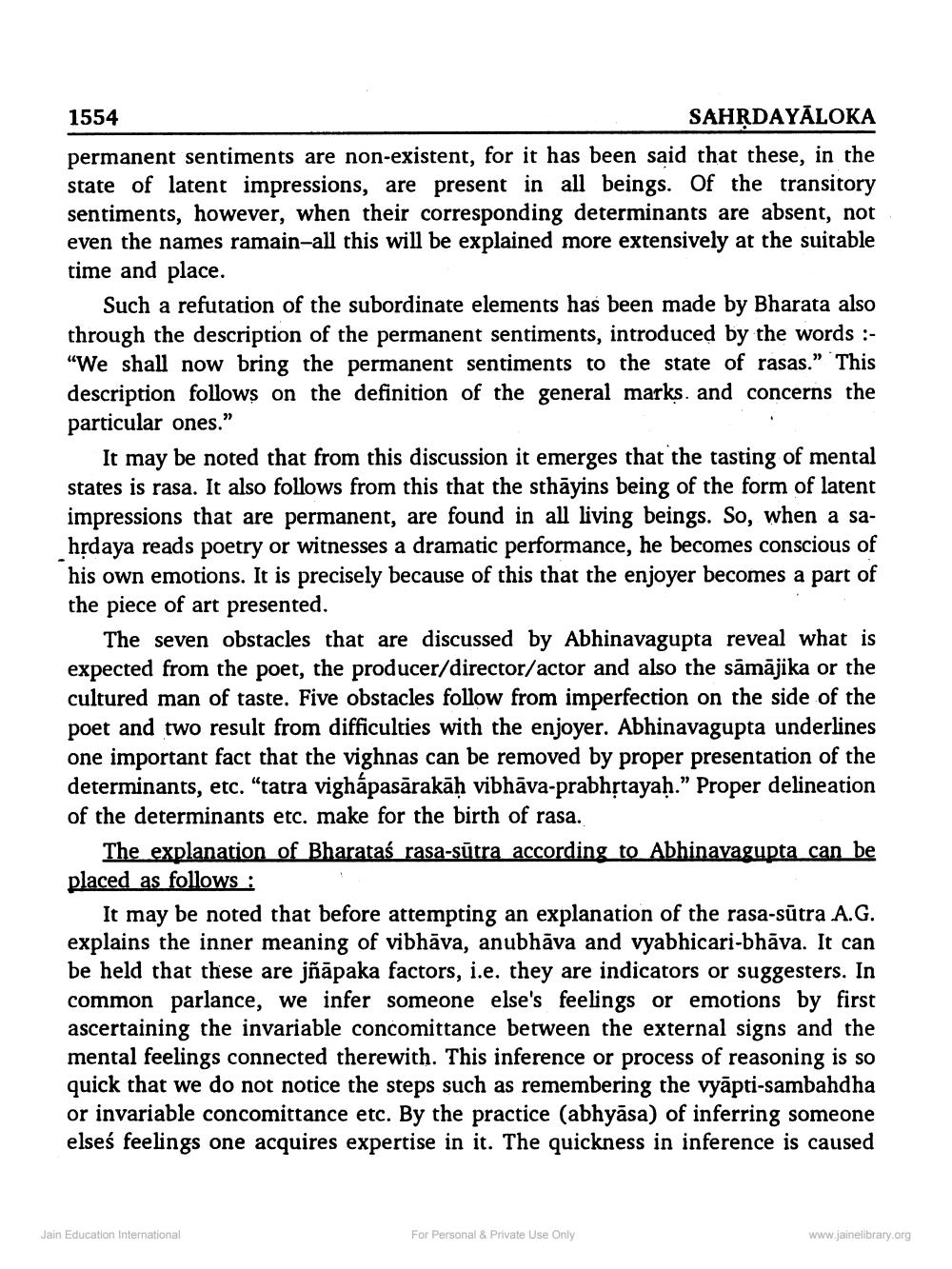________________
1554
SAHRDAYĀLOKA permanent sentiments are non-existent, for it has been said that these, in the state of latent impressions, are present in all beings. Of the transitory sentiments, however, when their corresponding determinants are absent, not even the names ramain-all this will be explained more extensively at the suitable time and place.
Such a refutation of the subordinate elements has been made by Bharata also through the description of the permanent sentiments, introduced by the words :"We shall now bring the permanent sentiments to the state of rasas." This description follows on the definition of the general marks, and concerns the particular ones.”
It may be noted that from this discussion it emerges that the tasting of mental states is rasa. It also follows from this that the sthāyins being of the form of latent impressions that are permanent, are found in all living beings. So, when a sahrdaya reads poetry or witnesses a dramatic performance, he becomes conscious of his own emotions. It is precisely because of this that the enjoyer becomes a part of the piece of art presented.
The seven obstacles that are discussed by Abhinavagupta reveal what is expected from the poet, the producer/director/actor and also the sāmājika or the cultured man of taste. Five obstacles follow from imperfection on the side of the poet and two result from difficulties with the enjoyer. Abhinavagupta underlines one important fact that the vighnas can be removed by proper presentation of the determinants, etc. “tatra vighápasārakāḥ vibhāva-prabhịtayaḥ.” Proper delineation of the determinants etc. make for the birth of rasa.
The explanation of Bharataś rasa-sūtra according to Abhinavagupta can be placed as follows :
It may be noted that before attempting an explanation of the rasa-sūtra A.G. explains the inner meaning of vibhāva, anubhāva and vyabhicari-bhāva. It can be held that these are jñāpaka factors, i.e. they are indicators or suggesters. In common parlance, we infer someone else's feelings or emotions by first ascertaining the invariable concomittance between the external signs and the mental feelings connected therewith. This inference or process of reasoning is so quick that we do not notice the steps such as remembering the vyāpti-sambahdha or invariable concomittance etc. By the practice (abhyāsa) of inferring someone elseś feelings one acquires expertise in it. The quickness in inference is caused
Jain Education International
For Personal & Private Use Only
www.jainelibrary.org




